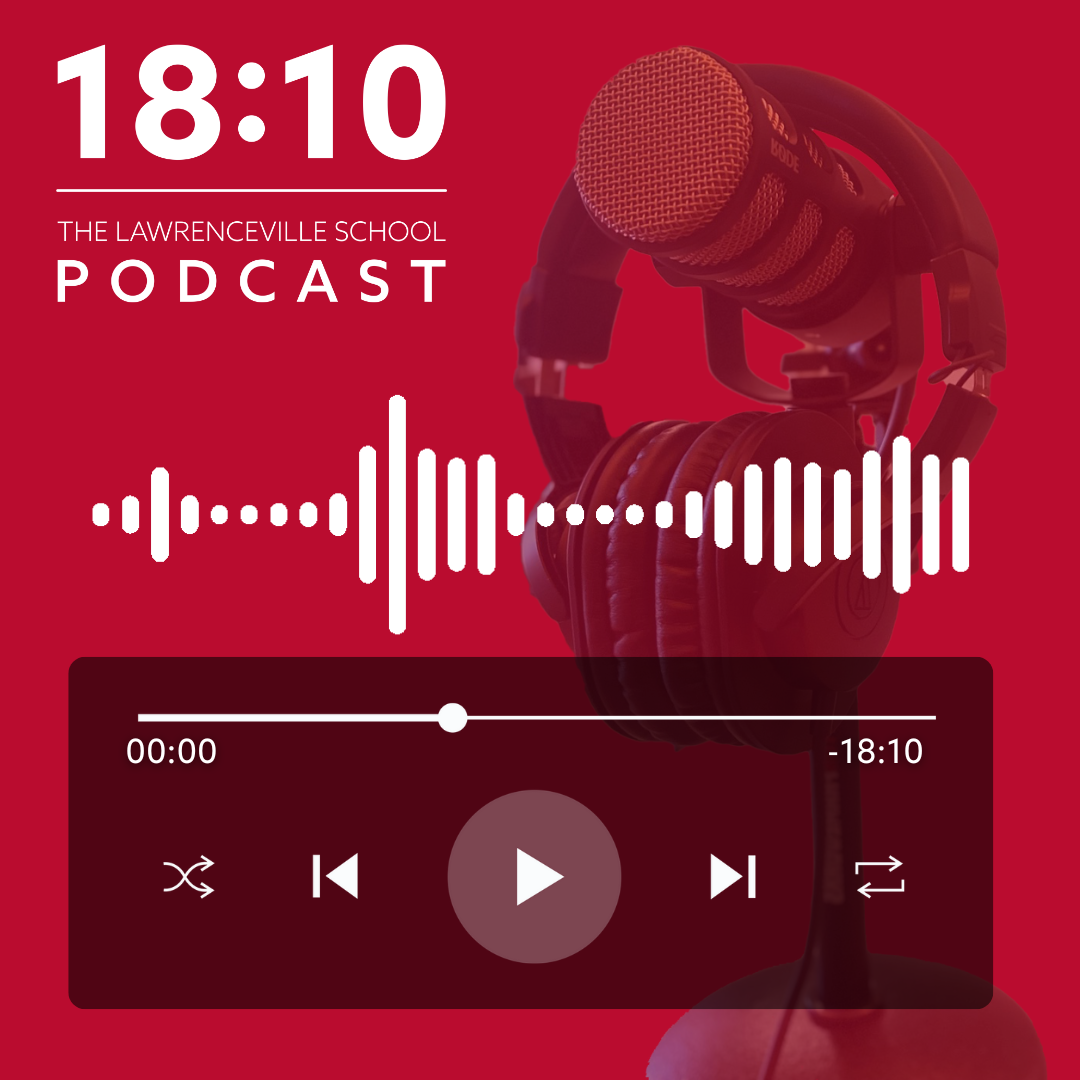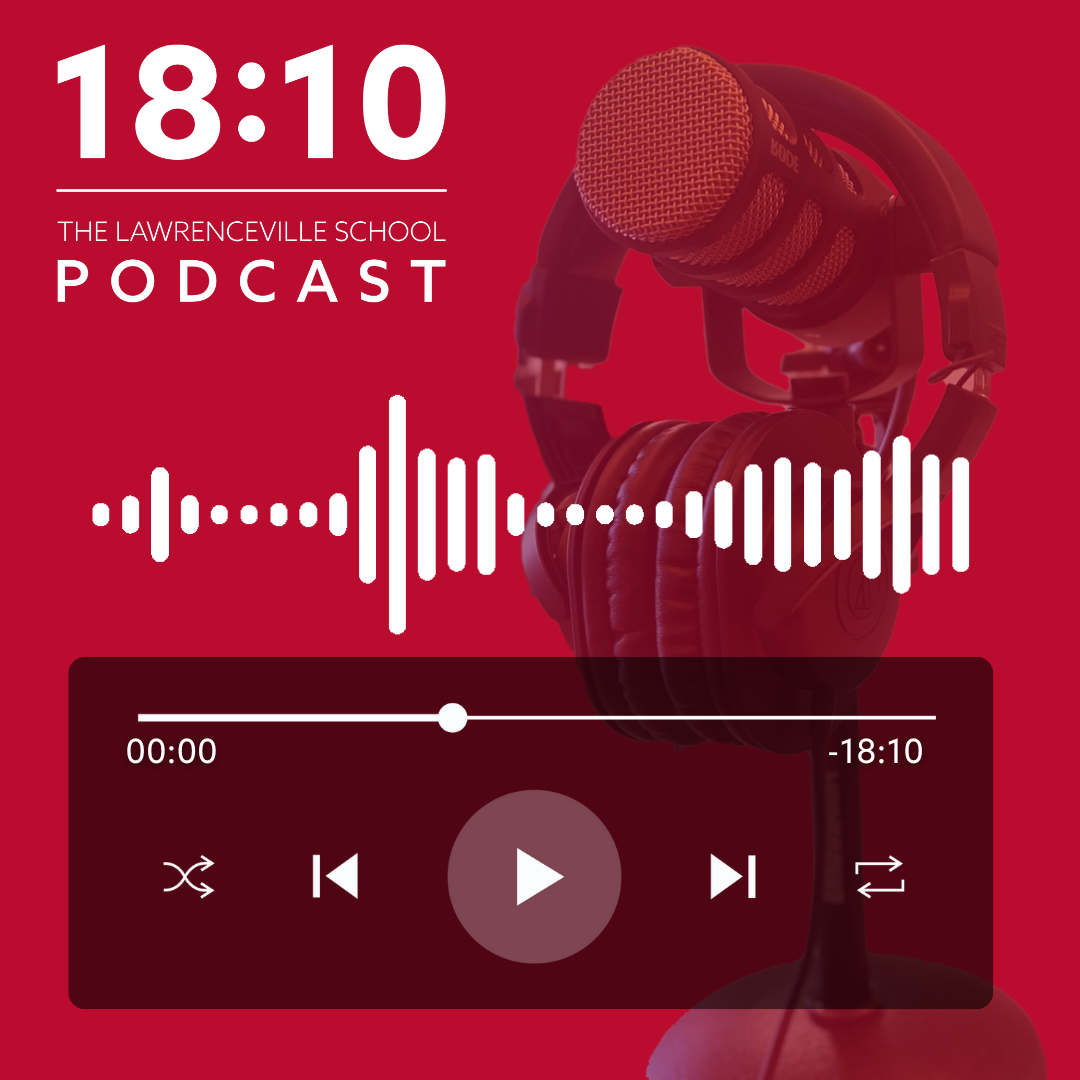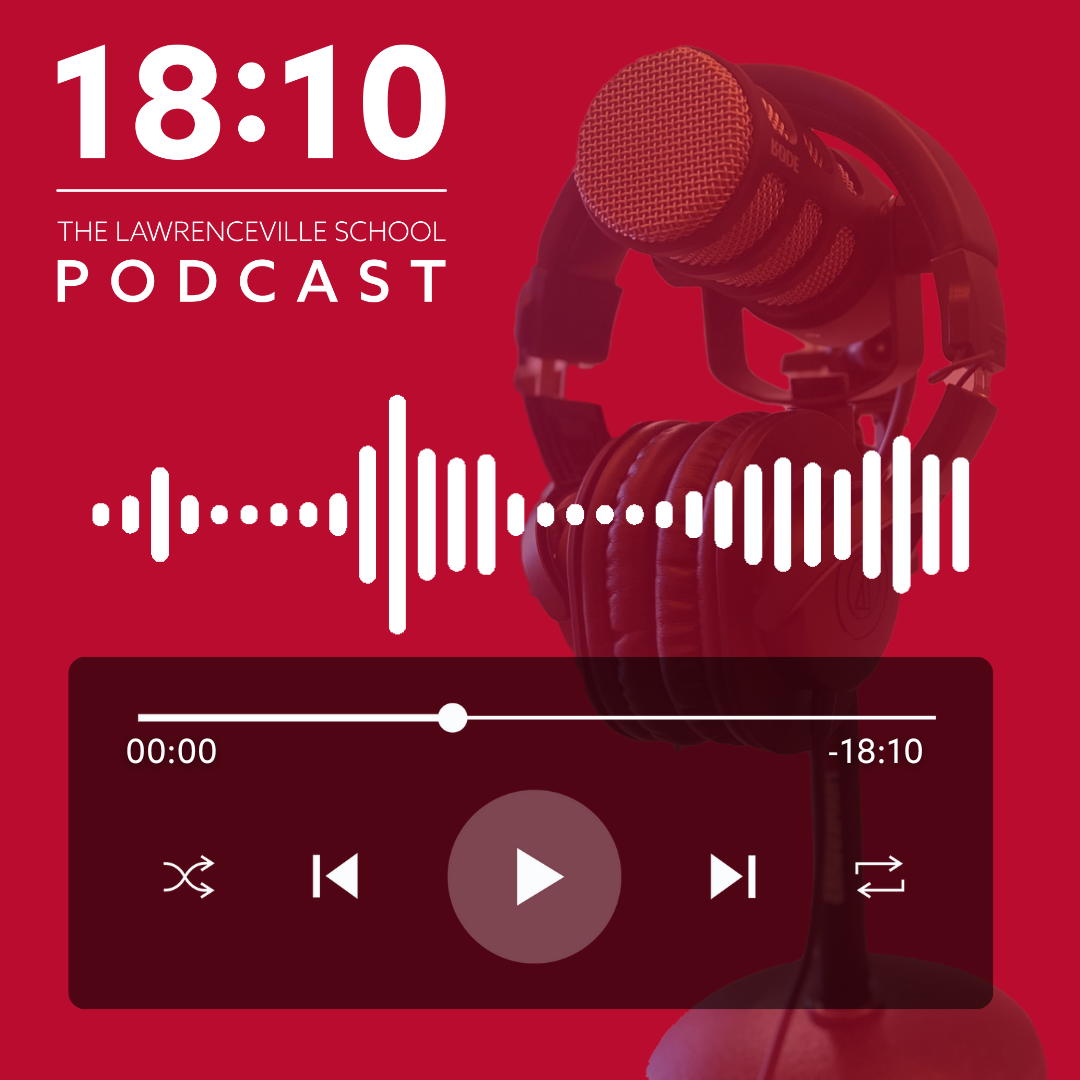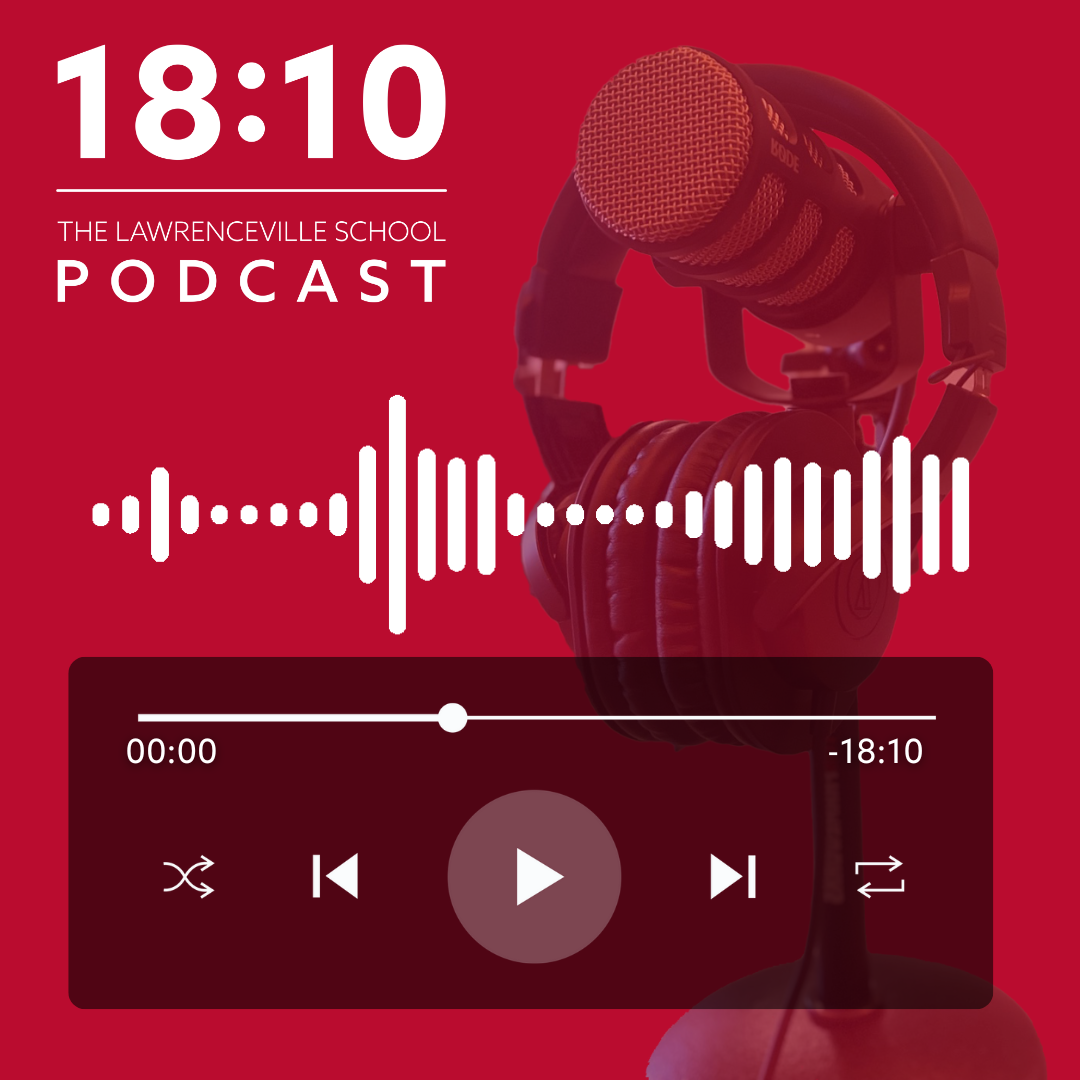Episode Transcript
[00:00:02] Speaker A: Welcome to 1810, a podcast produced by the Lawrenceville School. In 18 minutes and 10 seconds, we explore the future of education with insights from bright minded individuals, inspiring new ways of thinking.
In this part of the conversation, Cameron and I explore how Harkness is key to our work of building a community of lifelong learners.
I think the power of institutions to do that. I guess the question is, I think we were talking, like, are we ready to sing the funeral hymn for Woke?
And I think if you had talked to me in 2016, I was like, yes, it's done, it's dead, it's over, let's move on to the next. But interestingly enough, in thinking about this conversation and the history that is so far reaching for this word, I don't know that I will use it right, but I wouldn't, I don't. I'm not that willing to let someone else's misuse of our term cause us to abandon its history.
[00:01:06] Speaker B: I still struggle. Right. I think in our current moment, it has been weaponized so well in and ensharpened so well and has been deployed in ways to really undermine the work that I wonder if our energies are better used developing a new framework or a new term. Right? And I think that's something that black folks have done for generations, right? Like they have always been avant garde in creations of art, of culture, of intellectual frameworks that have advanced this nation. If we're talking particularly about black history and African American history, which has really informed this notion of woke.
So I wonder if our energies are better used in creating more relevant frameworks that could do the work of Woke and more.
And I wonder what that looks like at Lawrenceville. Obviously we're not engaging the word woke or the idea of woke, but we have figured out different frameworks that really are anchored into the mission of what this school is and what we do.
For example, one of the frameworks that I have developed and have been trying to advance is this notion of community discourse.
How do you use Harkness? How do you use principles of restorative justice? How do you use our mission to guide our. Our everyday critical engagement with ideas and with each other in a way that creates inclusion, creates belonging, and still challenges us and pushes us to be better people and better scholars? Because we're a school, right? We are training students to be critical and independent thinkers.
So that's what I mean. That's a case example of what I mean about developing a new framework or way of thinking.
[00:03:05] Speaker A: Yeah, I mean, I think so there's a part of Me that still doesn't wanna let go of the word because of its history. And it's probably ego also, kind of cultural ego. Not like wanting to admit the word is gonna be now it's going to obscure more than it enlightens, and it's going to impede more than it facilitates. And so I'm willing to sit with that. I think, in my own inside self, I'm like, I'm not letting go of that word.
But I think, to your point, putting the word aside, there is work that we do and there's work that we try to encourage our students to do that does the work of the best of the woke tradition that we just kind of walked through. Right.
[00:03:53] Speaker B: And I think we should be clear, right? There is the best of the woke tradition that we have just cited with this history of word.
[00:04:01] Speaker A: That's right.
[00:04:01] Speaker B: But there are things in the woke history and tradition that.
[00:04:05] Speaker A: That don't work.
[00:04:08] Speaker B: Right. Like being dogmatic, simplistic, not creating coalition around values and mission. Right. When we talk about intellectual laziness, that's also.
It complicates that word as well.
[00:04:23] Speaker A: Yeah. And I think that that's a good way to frame this. Right. We are not, and I think you and I have talked about this before, that there is a kind of orthodoxy that has developed around, quote, unquote, wokeness and orthodoxy everywhere. Yes. Well, that's true. Right. Like, there's this sense of, like, you must think this way. And I think that that's one of our biggest things is to challenge dogmatism of any sort, any kind. Right. That we must be critical at all times, in all ways.
Right.
[00:04:59] Speaker B: There is not just one truth.
[00:05:01] Speaker A: There is not just one truth. So what are some of the things that, you know, you and I, as teachers at this school who use what is called harkness pedagogy, what are some of the things that I think we have identified out of that pedagogy that accomplishes this work of what King and the NAACP and the people of the Bethel tradition. I know one of them is just being historically informed, which we just model in this conversation. Right. Like, first, what is the history of this thing? Right. That to understand that everything has a history and in order to even tackle it first, understand where it's coming from. Right. And so I think that that's the number one thing. And I think. Cause as historians, that's also something that's second nature to what we do is like, what is the history of this? Which gives us a sense of the richness, the Nuances, the intentions, what was successful, what was not successful, and how to move forward. So historically informed is definitely one of our pillars of this.
[00:06:08] Speaker B: And I think the second pillar that we've talked about is a type of critical awareness and engagement, which I think sort of blends into the historically informed history of a term that we think about the positionality and the perspective of the people who developed it or who were involved or living through it, and that we ask questions that is core to what we do at the Harkness table. And we might need to backtrack a little bit before we get through all of the four pillars, but I think sometimes it's really important to make sure that we're all clear on the Harkness pedigree.
[00:06:45] Speaker A: What is Harkness?
[00:06:46] Speaker B: Right, right, right, right.
[00:06:46] Speaker A: For people who, who are not familiar with har, I see you as a master Harkness teacher. So if you could, in 30 seconds or less, tell me, what is Harkness?
[00:07:00] Speaker B: 30 seconds.
I view Harkness as a philosophy, and I think it can be applied differently. But the philosophy really is anchored in student centered and led learning that really advances them as critical thinkers and advances intellectual humility and intellectual curiosity. So core to being at the table is the kids having a shared text. And that shared text can literally be an article, a book, a novel, or a film or a piece of art, right? And they have those things in common and they are critically engaging with them, that text, while the instructor facilitates that conversation. I often like to think about the facilitator being sort of like a. A jazz conductor because there's all of this experimentation happening, right. So the, the instructor as facilitator keeps pace, right? Tells folks where to start, where to take a pause, you know, if we need to replay that, all of those things, right. So the instructor's control is only over selecting the text and only selecting questions that can really advance the conversation. Otherwise, it is the student's ball game. So these four pillars, right, that we're going through, that should be in every single class. So this historical engagement and information, being critically aware and critically engaging with your text, those first two, you can't have a successful Harkness class without that.
[00:08:43] Speaker A: And I think when we look back at the history of what Woke at its best was intended to do. It was an exhortation to people to be informed, to understand their history.
Right. And to be critical about the present.
And part of that is asking questions.
Right. And I really like how you talked about what makes this work is a common text, right? And I think if we're outside of the classroom, what makes this work is a common, shared values, right? So the values become the kind of text, and people, just like people, come to the table with different perspectives on the text, different ideas about what the text is saying, different ideas about the value of a text. They still have the text in common. Similarly, outside the classroom, people may have different politics. They may have different ideas of how the values that they share can be realized or implemented in the society, but they have this still this shared value. The common text of us is the shared values that we have, right? And so I think that that's how we can understand harkness, not just in the classroom, but in community.
[00:09:59] Speaker B: So, like, what? You know, one of the things I've called is a Harkness ethos, right? How do you bring a harkness ethos to the community?
So I really like how you have framed that.
[00:10:10] Speaker A: So we've talked about producing global citizens with a moral compass who are ethically engaged.
But I think the other thing that we also really like to focus on is this idea that we highlight skills over content, right?
[00:10:26] Speaker B: I think often we can get bogged down into the nitty gritty and the content. Just speaking inside the classroom, as an instructor, like, you know, what they're gonna remember is those skills, right? The skills of. All, right? How do I come to a text? How do I understand it, right? What is this source? What is this perspective? What is the interpretation offered? What is the context of the source? What evidence are they using that's compelling or not compelling? And then what is my interpretation of this material? What do I think?
Does it ring true? What are the faults? Can I apply it to my present day?
[00:11:05] Speaker A: You know, that for me, calls me back to how the Hutchins Institute approaches social justice. As I said, a subject of study, a method of analysis, and inquiring, an ethics of practice.
The three questions, what do you know? How do you know it? And who are you as a result? And I think the most basic form of education is usually preoccupied with that first question, what do you know? There's, like, a list of things that you need to know.
The next level of this is, how do you know, right? And this is the difference between giving a man a fish and teaching him how to fish, right?
And usually, if you can accomplish the, how do you know you're on good standing. But the third question I think is the really the more important question for me and for us, which is, who are you?
As a result, that is ultimately what we are Trying to do here. Right. Increasingly, education is.
I mean, there is no way to comprehensively share any particular.
Comprehensive knowledge on the subject. Right.
[00:12:11] Speaker B: And knowledge is always changing.
[00:12:12] Speaker A: Knowledge is always changing. I think what we can do is develop these muscles of engagement, of inquiry. Right. Of research of how to recover this information. But ultimately it's the question of who are you?
[00:12:25] Speaker B: Yeah. And you talked about. You use this phrasing, building muscle. Right. Which I think is important. Like our kids understand what it means to train in athletics. Right. This is what it means to train to be, you know, a critical person. Right.
[00:12:41] Speaker A: A global citizen.
[00:12:42] Speaker B: And a global citizen. This is training to be a global citizen. And a part of that which we've talked about is being uncomfortable and understanding what discomfort is versus harm.
[00:12:56] Speaker A: Okay, so let's talk about that a little bit, because I feel like. And social media has proliferated with this, where a lot of people have used harm to describe a feeling they have that is really discomfort.
Right.
Of not wanting to be faced with or encounter ideas that challenge them or perspectives that challenge them or that they disagree with. And so they'll say, I feel harmed. Tell me how you understand the difference between discomfort and harm.
[00:13:37] Speaker B: That's a very good question.
I think discomfort really is about your foundation sort of being shaken.
It doesn't feel good sometimes in the moment. Right.
There's this feeling of, what do I know?
Who am I? Am I right? Am I wrong?
Or I don't know. And that. That is not a pleasant feeling all the time. And sometimes that happens when you are doing harkness. Well, Right. When you are engaging historically, when you're engaging critically, when you're highlighting or trying to build that muscle of skills. Right.
When you're focusing on being a global citizen and developing a consciousness, that's hard.
[00:14:24] Speaker A: So there's a kind of decentering.
[00:14:25] Speaker B: Yes, a decentering is happening. And when you are decentering and you're going outside of yourself, it's. It is not fun all the time. Right. And it's not comfortable. But when we're talking about harm, we're talking about things that attack the core of who you are, that make you question or feel like you don't belong.
[00:14:48] Speaker A: I think belonging, I think, is what I'm hearing is the emerging theme. And so discomfort is challenging ideas.
[00:14:55] Speaker B: Yes.
[00:14:56] Speaker A: Not your humanity.
[00:14:57] Speaker B: Exactly. You've. You've put your finger on it.
[00:14:59] Speaker A: So it's not questioning your place at the table.
[00:15:03] Speaker B: No, it's questioning, what do you think? Why do you think that? Am I right? Is this a viable claim? Why Isn't it?
[00:15:13] Speaker A: So where do we go from here? Oh, what can we all do?
[00:15:18] Speaker B: I think it goes back to really dedicating oneself to a particular ethos.
Right. And you can call it a Harkness ethos.
[00:15:28] Speaker A: So all roads lead to harkness.
[00:15:29] Speaker B: Ah, yes, I'm good with that.
[00:15:32] Speaker A: I'm good with that.
[00:15:35] Speaker B: We could say it's a Harkness ethos, but like, really, like you need. I. I would argue that you have to value community and you have to value the way one practices community. And that goes back to shared values, shared mission.
But then you also have to think about how do you get to that mission or accomplish those values, which we talked about before. People have different ways of doing that. Right. And you have to be critically engaging over how to accomplish those values and missions.
[00:16:07] Speaker A: Yeah. You know, I think that I would say yes to all of that. I would say, you know, thinking about this historically informed, critically engaged, community aware kind of approach.
You know, I would say, like, okay, so, you know, maybe using woke is at this point in time, not effective.
But I would encourage people not to abandon the history of this concept and not. I wouldn't say not abandon, but not to allow.
[00:16:38] Speaker B: Dismiss.
[00:16:39] Speaker A: Yeah, yeah. Not to allow people to distort it, to diminish the meaning of a very long tradition of critical inquiry and awareness and political awareness and consciousness about the world and the ways that we should show up in the world.
[00:16:57] Speaker B: Agreed.
[00:16:57] Speaker A: As I think back again to this long tradition of woke and what it has meant in communities, I think back to the Harold Melvin in the Blue Notes song Wake Up Everybody released in 1975. And the second verse of that says, wake up all the teachers, time to teach a new way. Maybe then they'll understand to what you have to say because they're the ones who coming up and the world is in their hands. When you teach the children, teach them the very best you can. I think that's what we've been talking about.
[00:17:26] Speaker B: I think that's a beautiful way to.
[00:17:27] Speaker A: Close from us to you in 1810. We hope you enjoyed today's session and we look forward to our next exploration.
If you have comments or questions about today's episode, please reach out to communicationsrenceville.org we're always interested to hear your ideas.
A transcript of today's episode is available at elville1810.castos.com 1810 is produced and edited.
[00:17:53] Speaker B: By the Communications department at the Lawrenceville School with engineering by Shayun Alodash. Special thanks to Jesse Welsh, Andrea Fereshta Lisa Gillard for inspiration and guidance.



